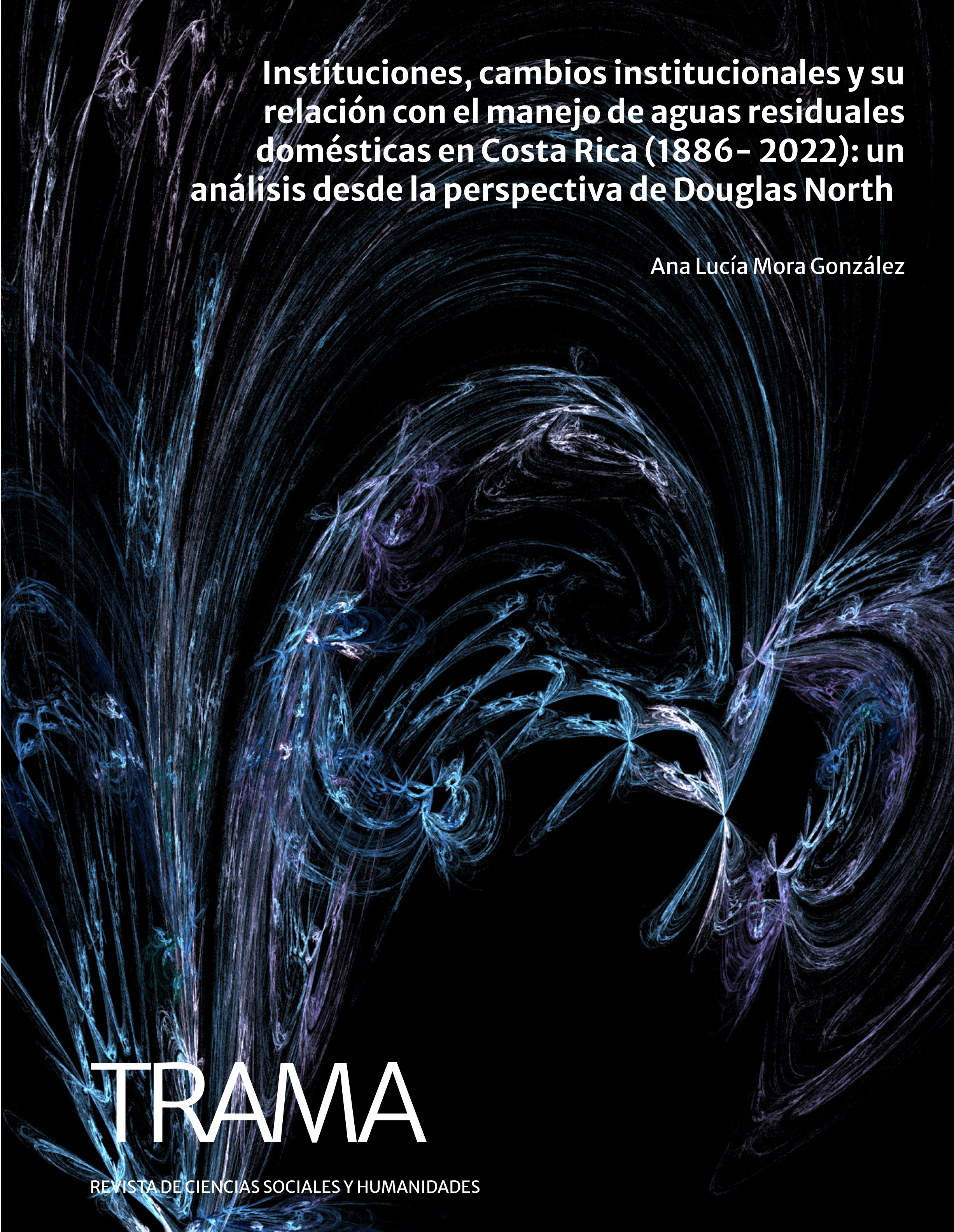Instituciones, cambios institucionales y su relación con el manejo de aguas residuales domésticas en Costa Rica (1886- 2022): un análisis desde la perspectiva de Douglas North
Conteúdo do artigo principal
Resumo
Este estudio examina cómo los cambios institucionales han influido en la gestión de aguas residuales domésticas en Costa Rica desde finales del siglo XIX. Su objetivo es entender el impacto de las transformaciones en las instituciones, tanto formales como informales, sobre el manejo de estos efluentes. Basado en el marco teórico de Douglass North sobre instituciones y cambio institucional, el análisis se centra en las políticas y prácticas implementadas frente a los desafíos sanitarios y ambientales. Se realizó una revisión documental, incluyendo fuentes primarias como registros históricos, que evidencian cómo estas políticas, iniciadas en la capital, se han transferido a otras regiones en diferentes ritmos. A pesar de estos esfuerzos, en 2024, más del 70% de la población costarricense aún carece de acceso a un sistema de alcantarillado sanitario, lo que refleja la magnitud del desafío. Complementando la revisión documental, se analizaron textos académicos que amplían la teoría de North, revelando la influencia de reglas formales e informales en la evolución de las políticas de saneamiento. Aunque se reconocen avances importantes, la discusión enfatiza que la implementación efectiva sigue siendo un desafío significativo. En conclusión, los cambios institucionales han sido cruciales para mejorar la gestión de aguas residuales en el país, aunque aún persisten grandes retos, como ampliar la cobertura de plantas de tratamiento de aguas residuales que aseguren un retorno seguro de estas aguas al ecosistema.
Detalhes do artigo

Este trabalho está licenciado sob uma licença Creative Commons Attribution-NonCommercial-NoDerivatives 4.0 International License.

This work is licensed under a Creative Commons Attribution-NonCommercial-NoDerivs 3.0 Unported License.

